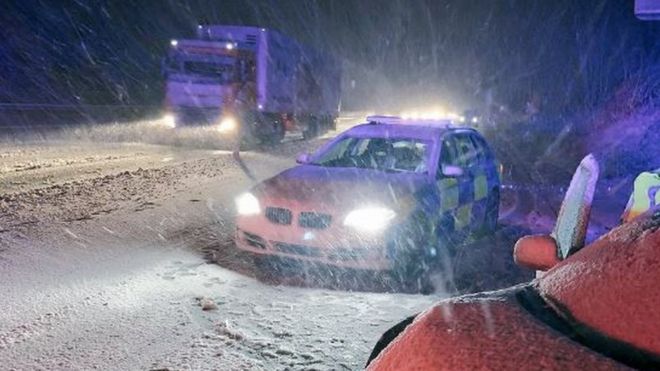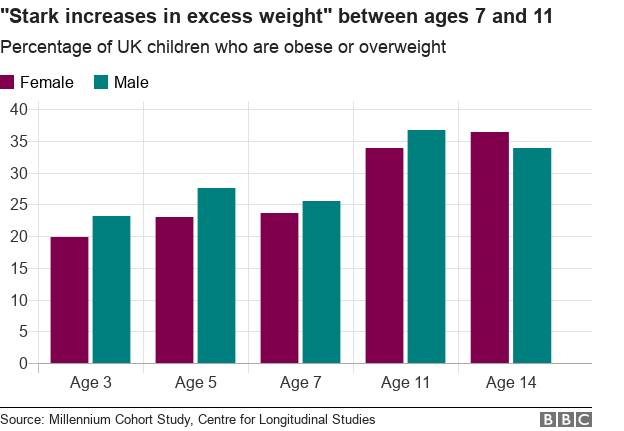 NORTHANTS RAPT
NORTHANTS RAPT
Police are warning drivers of hazardous conditions on roads after snow fell in parts of the UK overnight.
The M1 southbound was blocked at junction 19 after a lorry accident, but this is expected to clear by 07:30 GMT.
The Met Office has issued warnings for ice for northern Scotland, Northern Ireland and north-east England and snow for Wales and parts of England.
Meanwhile, there are 14,000 properties without power in the Midlands, south-west England and parts of Wales.
Western Power Distribution said "a small band" of homes in Worcester, Gloucester and Coventry were affected.
The firm said the cuts were all snow-related and extra staff - who had been on standby for poor weather - had been called in to work to reconnect properties.
Lorry driver Simon Talbot told BBC News he had been stuck on the A14 in Northamptonshire for three hours.
"I've been stationary since about 02:20 GMT westbound on the A14, there is approximately 5ins (12cm) of snow we've had and I'm just stationary."
'Hazardous conditions'
He added: "I'm on an incline and there are lorries and vans in front that are unable to get up the hill because of the snow. So it is just a waiting game at the moment."
Referring to the incident on the M1, Leicestershire Police tweeted: "There has been an accident involving a lorry.
"Unfortunately, all lanes are currently blocked. Police and Highways are aware and are currently dealing. Please make alternative travel arrangements."
It added: "Please be aware that snow is falling across the county and in some cases it is settling, causing hazardous conditions for drivers. Please take care and take the necessary precautions."
Northamptonshire Roads and Armed Policing Team (RAPT) tweeted: "Heavy snow has started. The M1 has quickly become treacherous. RAPT on scene at a single vehicle RTC (road traffic collision)."
Air travellers have been warned that there may be disruptions at some airports. Birmingham Airport closed for a short time late on Tuesday to allow for slush and snow to be cleared from the runway.
And Luton Airport, which said it was expecting snow this morning, advised passengers to check with their airline for the status of their flight.



